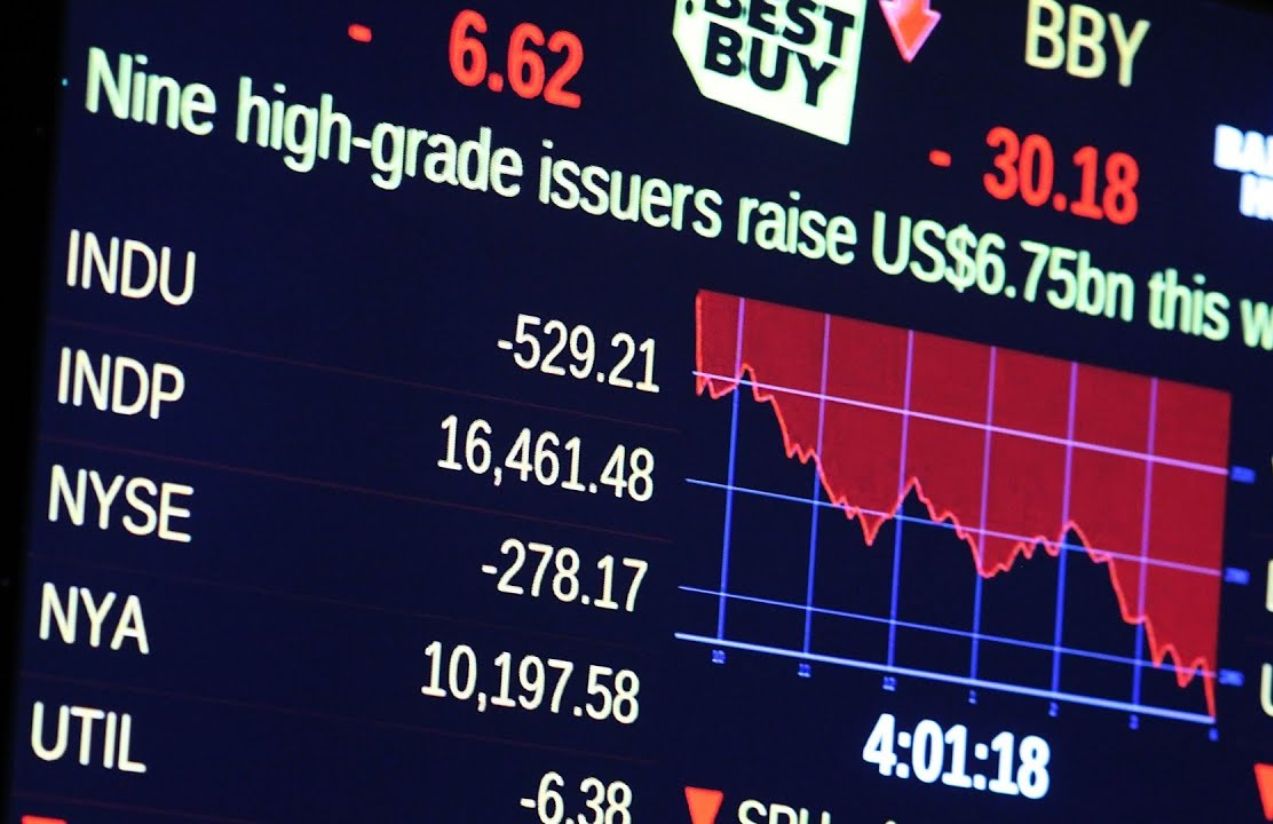International markets are struggling to digest the sharp protectionist shift from the United States, while China’s announced retaliatory measures are fueling fears of a full-blown global trade war that could trigger a recession. Although the new tariffs have yet to take effect and tough negotiations are expected, investors have hit the panic button as a precaution. After Wall Street endured its worst session in five years on Thursday, losses deepened on Friday, pushing the overall drop past 10% in just two trading days. The S&P 500 fell 6%, the Nasdaq dropped 5.82%, and the Dow Jones lost 5.5%.
Federal Reserve Chair Jerome Powell further rattled markets by warning that the economic impact of the tariffs would be “significantly greater” than expected, leading to lower growth and higher inflation.
Volatility surged across the board, and no market was spared. The Spanish Ibex 35, which had avoided major losses on Thursday, plunged 5.83% on Friday—comparable only to historic moments such as the pandemic crash (-14%), Brexit (-12%), the Lehman Brothers collapse, and the worst days of the eurozone crisis. European stocks, which had previously surged in March on optimism around economic growth, were pulled into the pessimism: Germany’s DAX fell 4.65%, the Euro Stoxx 50 dropped 4.6%, France’s CAC 40 lost 4.3%, and the UK’s FTSE 100 declined 5%. Bank-heavy indices like Italy’s MIB (-6.53%) and Spain’s Ibex 35 were hit the hardest. Europe’s financial sector, which had helped buoy Spanish stocks on Thursday, plummeted 8.4% on Friday.
The shock rippled through all asset classes—commodities, currencies, and bonds. As investors fled equities, they piled into safer assets like gold and government bonds. Brent crude oil dropped to $65.58 a barrel, its lowest level since April 2021, while the euro held steady around $1.09 against the dollar.
Losses on the Ibex were widespread, but the banking sector took the hardest hit. Despite a strong start to the year—driven by record profits and rising dividends—banks are now suffering under expectations of slower growth and lower interest rates, which shrink lending margins. Sabadell plunged 10.97%, BBVA fell 9.37%, Santander dropped 8.77%, Unicaja sank 10.56%, CaixaBank fell 10.3%, and Bankinter declined 9.31%.
Bank of America urged calm, advising investors to underweight cyclical stocks such as financials. But the market chose to sell first and ask questions later. Even traditionally defensive, high-dividend stocks like Redeia (-2.39%), Enagás (-2.56%), and Iberdrola (-3.57%) were caught in the sell-off.
UBS analysts said the tariffs were “far worse than expected” but believe the market reaction has been overblown. They stress that the key issue is whether the tariffs are ideological or a bargaining chip. UBS sees room for de-escalation, as U.S. trading partners still hold leverage—such as owning 24% of U.S. public debt, China’s dominance in rare earths and strategic materials, and the potential formation of alternative trade blocs. “The U.S. accounts for just 15% of global trade,” they noted. Still, they warned: “If the tariffs are ideologically driven, we could face the worst-case scenario—and that cannot be ruled out.”
As negotiations unfold, analysts are beginning to slash growth forecasts. Generali Investment has lowered its U.S. GDP projection to 1.5%, below the Fed’s latest estimate of 1.7%. The dreaded term “stagflation” (low growth combined with high inflation) is making a comeback.
Even March’s strong U.S. labor market data failed to ease concerns. Before the full scale of the tariffs was known, the U.S. economy added 228,000 jobs—well above the 150,000 expected. Yet ING analysts note that uncertainty around the economic outlook is forcing companies to reassess their hiring plans, leaving little room for near-term improvement.
Mark Haefele, Chief Investment Officer at UBS Global WM, warned that the economic slowdown won’t be limited to the U.S. “We believe European growth will also decelerate,” he said. Slower growth has reignited expectations of rate cuts. Unlike the U.S., where inflation remains persistent even before the full tariff package is implemented, eurozone inflation is moderating—it fell to 2.2% in March—leaving the European Central Bank more room to act. Citi analysts believe the ECB should revise its growth outlook downward. “Even with higher expected fiscal spending in Germany and Europe over the next few years, a data-dependent central bank should find plenty of reasons to continue cutting rates,” they said. The recent debate over whether to pause rate cuts is, in their view, out of sync with the growing wave of negative news.
As investors dump stocks, demand for bonds has surged, driving up prices and pushing yields down. This trend is playing out on both sides of the Atlantic: the U.S. 10-year yield fell below 4%, while the German 10-year bund dropped to 2.58%, nearing levels seen before Germany’s fiscal stimulus announcement—the biggest bond-driven rate spike since the fall of the Berlin Wall. Gold, which had recently hit record highs on geopolitical fears, corrected 2.4% but remained above $3,000 per ounce.
Lower growth expectations are also weighing on commodities. A rise in OPEC+ output—by 411,000 barrels per day—combined with fears of an economic slowdown, sent Brent prices tumbling 5.9% to $65.58, a level last seen when the global economy was still largely frozen in April 2021. “If the current tariffs remain in place, we’re likely to see a recession in the second or third quarter, along with a bear market,” said David Bahnsen, CIO of The Bahnsen Group.
The chart unveiled by Donald Trump on Wednesday—marketed as a “liberation day” detailing tariffs on key trading partners—has triggered a historic financial storm and signaled a tectonic shift in the global economic order. Investors have moved from caution to near-hysteria. Analysts urge patience, warning that months of tough negotiations lie ahead to prevent a deeper downturn. For now, however, markets have made their stance clear—by selling, hard and fast.

